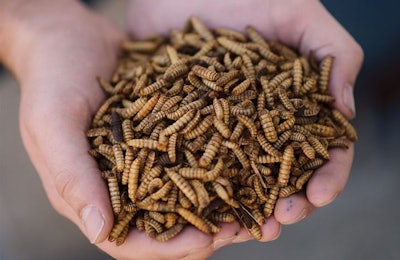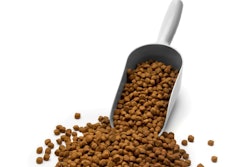
Singapore-based Entobel, an insect farming company specializing in black soldier fly larvae (BSFL) production for pet food and aquafeed, has secured funding from the International Finance Corp (IFC) to expand its operations in Vietnam. Although no funding amount was disclosed, the company noted in its press release that the financing is part of a long-term collaboration agreement with IFC. Based on previous disclosures from IFC, it is likely the funding amount was equal to US$10 million, per Deal Street Asia.
Run by two Belgian co-founders, Gaetan Crielaard and Alexandre de Caters, Entobel made the strategic decision to operate in Vietnam, as it is climatically suitable for BSFL, with relatively lower energy costs compared to European markets.
The company set up its first plant in Vietnam in 2019 after six years of R&D activities, with a capacity of 1,000 metric tons annually for its H-Meal. Along with H-Oil, H-Meal is the primary product produced by Entobel. It is a protein source derived from BSFL, with a minimum crude protein content of 53% and a maximum hydrolyzed fat content of 18%.
Largest insect protein plant in Asia
Now the company is in the process of completing its second facility in Vietnam’s Vung Tau province, with an expected capacity of producing 10,000 metric tons of H-Meal annually. The plant is expected to be the largest of its kind in Asia, with funding for its construction raised from Entobel’s Series B financing of US$30 million: US$25 million from Mekong Capital and the remaining US$5 million from Dragon Capital.
Insect protein companies like Entobel and Protenga are welcomed in the Southeast Asia economies by local governments, which remain focused on food security, job creation and market innovations, as a way to differentiate themselves from other regions in this sphere. Beyond the right climatic conditions, cheaper land, labor and other resources also make it a boon for insect farmers.
















